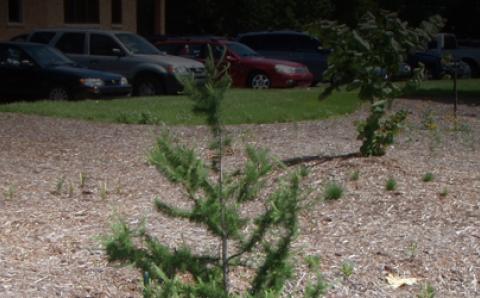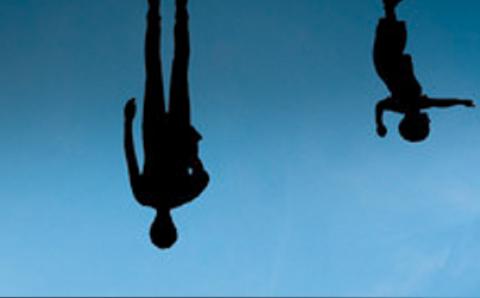After years of drawing on stories and teachings from the Bible in my ministry, I was eager to finally see the settings of these very important events firsthand. I also wanted to learn about what is happening in the Holy Land today.
In preparation for our tour in March 2013, we were asked to read the book Blood Brothers by Elias Chacour, a Palestinian Christian and the Archbishop of the Melkite Catholic Church in Galilee. I’d first heard Chacour speak in 2010 at Calvin College in Grand Rapids, Mich., where he told of his difficulties in getting a permit from the government in Jerusalem to build a gymnasium for his inter-religious school near Haifa, Israel. Chacour’s school is a peace-building endeavor, drawing together 2,500 students from Christian, Muslim, Druze, and Jewish families from kindergarten through high school.
Chacour eventually received the permit after seeking the help of James Baker, secretary of state under the first President George Bush.
A significant highlight of our tour was visiting Chacour’s school. He pointed out that because of their common descent from Abraham in the Bible, Jews and Palestinians are indeed “blood brothers” who should live in harmony, as they did during his childhood. He believes that his Palestinian ancestors and their Christian faith date back to the time when Jesus and his disciples walked in their villages and olive orchards.
Contrary to the idea that this part of the world was “a land without a people” in 1948, the land was largely occupied by Palestinians, often living comfortably and cooperatively with communities of Jews. But the history of their relationship since Israel became a separate nation in 1948 has been hostile and oppressive.
We were reminded of that on our tour during a heart-wrenching visit to Yad Vashem, the well-known holocaust museum in Jerusalem. As we gathered at a site memorializing a “righteous” Dutch woman for protecting Jews during the holocaust, our sad reminiscing was interrupted by the deafening roar of a half-dozen military helicopters passing over the city.
These powerful instruments of control and suppression undoubtedly cause fear and dread for Palestinians, just as Nazi tanks, trucks, and sirens did for Jews in Western Europe around 1940. Signs of militarism are a part of modern-day life in Israel.
In 1978, I was surprised to learn from a Palestinian Christian living in San Francisco that there were many Palestinian Christians living in Nazareth of Galilee where this man had grown up. While in Israel, I shared this with a Palestinian from Nazareth, who sadly said, “That was in 1978. By now there aren’t many Christian Palestinians in Nazareth. They have moved to other countries.”
In our American enthusiasm for supporting the Jews in Israel, we have ignored the plight of the Palestinians, many of whom leave Israel rather than struggle with nagging fear, great restriction of movement, and limited opportunities for personal fulfillment for themselves and their children.
Much of the news coverage Americans get about Palestinians is dominated by reports on a militant political group known as Hamas, which has governmental power in a terribly overcrowded section of Israel known as Gaza. As the Israeli government allows more and more new “settlements” to occupy what is considered Palestinian land, Hamas militants desperately fire rockets toward those settlements. The Israelis respond with overwhelmingly greater firepower, causing disproportionately far more damage and deaths in Gaza, and we go on imagining that the behavior of Hamas represents “the Palestinians.”
It is time for us in the U.S. to realize that the Palestinians have a variety of opinions about how to present themselves as a distinct national group in Israel and in the world. But they all struggle with diminished human rights and second-class citizenship as residents of Israel.
You’ve probably heard that in Israeli-Palestinian negotiations the Palestinians will not agree that Israel has a right to exist as a nation. I used to be convinced that this was wrong on the part of Palestinians and prevents progress in peace-making. But then it occurred to me that if I were a Palestinian negotiator, I would have this question: Which Israel should have a right to exist—the Israel with considerably smaller land area consigned to them in l948? The Israel with greatly expanded borders after 1967? The Israel with considerably greater expansion through the present settlements? Or an Israel of the future with little or no land area for the Palestinians? And, in a related issue, an Israel that is ethnically pure Jewish, with limited rights for non-Jews?
Before true negotiations can proceed, Palestinians need to know what they are agreeing to. With the increasing constriction of reliable Palestinian land, is it not understandable that some of the Palestinians protest with violence? Is it not understandable that fellow Arabs in the nations surrounding Israel are upset by this blatant injustice?
Much of my own ministry has been among Native Americans. Over 200 years of gradually encroaching settlements of various white groups coming to occupy the North American continent, these Native Americans also suffered irreparable losses including huge land areas once occupied by many different tribes in different regions; the gradual deaths of perhaps 20 million Native people from starvation, diseases, and war; and the destruction of their unique cultures.
The history of our treatment of the American Indians, with the encouragement of government leaders and military power, is shameful and suggests obvious parallels to what has transpired for Palestinians in Israel in the past 65 years.
So I appeal to Jewish Americans and to fellow Christians who support Israel’s development and who see it as fulfillment of Bible prophecy to take seriously what is happening in Israel’s treatment of the Palestinians.
The abuse of Palestinians at the hands of the Israeli government is likely to have more and more exposure not only to Americans but to the whole world. Palestinians should have equal rights as citizens of Israel or be allowed to develop a viable separate nation. The building of high walls topped with barbed wire, heavily armed checkpoints, expansion of settlements in Palestinian regions, and harsh responses to occasional expressions of desperate protest from Gaza threaten any “solutions” to existing tensions.
The achievements of Jewish people in the fields of medicine, psychology, and other sciences are well-publicized, and they are admired around the world. When will we see compassion for “brother Palestinians”? When will we see creative breakthroughs that replace the boiling tensions with constructive cooperation?
The world knows that the Israeli government, and, in a sense, the people of Israel, are very dependent on the U.S. Americans are seen by the people of the Middle East and many governments as co-responsible for Israeli government actions. How long, then, can we pretend that we are uninvolved, or that we can do nothing about it! Our representatives in Washington D.C. should be informed that we disapprove of the Israeli government’s policies toward the Palestinians.
We are in a position to confess that in our history of dealing with ethnic and racial differences we have made some very serious mistakes, which we now regret, but also that we’re working on these issues and making some progress.
We can then invite our Israeli brothers to do this too.
Digging Deeper
“Israel & Palestine: A Very Short Introduction”—a six-minute film clip from Jewish Voices for Peace. jewishvoiceforpeace.org/content/israeli-palestinian-conflict-101
B’tselem—a reliable source for news about the occupied territories. btselem.org/English/
Films(available on Netflix or Amazon)
Little Town of Bethlehem
Five Broken Cameras
Books
Blood Brothers: The Dramatic Story of a Palestinian Christian Working for Peace in Israel by Elias Chacour (Chosen Books)
Understanding the Palestinian-Israeli Conflict: A Primer by Phyllis Bennis; available for free download. endtheoccupation.org/section.php?id=52
About the Author
Don Klompeen is a retired CRC minister with added training for addiction and family counseling. He served Native Americans for 20 years of ministry and participates in outreach activity at Mill Creek Community Church near Seattle, Wash.








